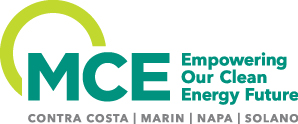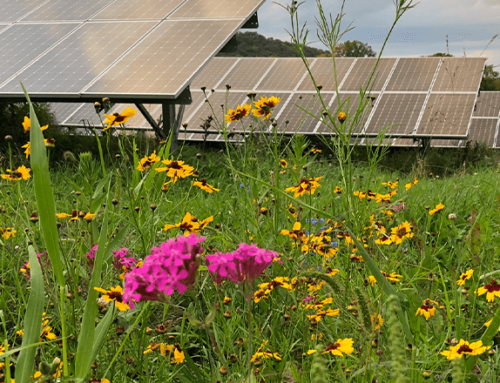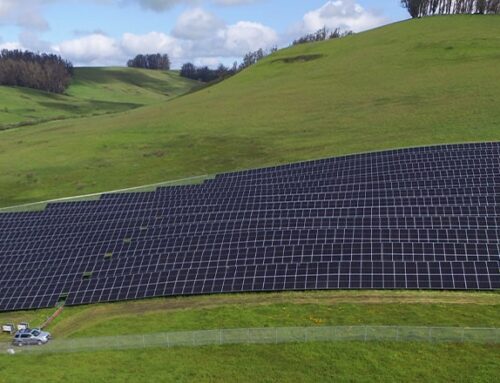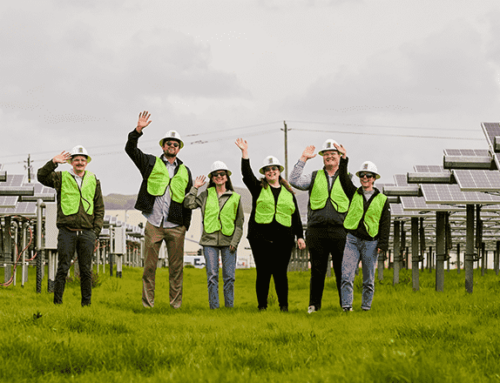The Clean Economy Empowerment Now (CLEEN) Project is our nation’s first cooperative idea database designed specifically for federal leaders and focused on providing actionable ideas to combat climate change, Build Back Better, and advance climate justice. The CLEEN Project was created through a collective of more than 250 contributors and 75 Advisory Board members from the private sector, federal and state government, environmental justice organizations, and leading climate-focused think tanks who share a desire to help catalyze job creation and a 21st century clean and just economy.
MCE CEO Dawn Weisz was invited to join the CLEEN Advisory Board in November 2020. Her contributions so far include two project proposals on behalf of MCE, as well as support reviewing approximately 20 proposals. Overviews of the two proposals are described in this blog. See a complete list of the proposals here.
The deadline for project proposals was February 24, 2021. Over 190 proposals are now available for the new administration to review and adopt to build a better path toward a clean and equitable energy future.
“I have been honored to work with the folks supporting the CLEEN Project,” said Dawn Weisz, MCE CEO. “The proposals that have been submitted as part of this project are innovative and practical, and have a focus on clean technology through a lens of environmental justice. As the founding CEO of a local not-for-profit renewable energy provider, I know just how important equity is in the fight against climate change and a just transition.”
Resiliency Project: Solar and Storage Infrastructure for Critical Facilities
An increase in widespread emergency power outages across the United States has been caused by extreme wildfire risks, severe storms, flooding, and hurricanes. These outages have left millions of people without power for days at a time, and the consequences of these events have been considerable: spoiled food and medicines, inability to work, and potential life-ending outcomes for vulnerable community members who require medical devices to manage health conditions. These events have prompted a growing need for critical facilities (emergency shelters, fire stations, food banks, health centers, and other facilities that provide important community services) to function as a safety net for communities. Moreover, adding storage nationwide helps renewable energy resources meet electricity demand without fossil fuel backup generation.
This proposal encourages the creation of a Department of Energy program to fund on-site solar and storage resources at critical facilities nationwide; the program would provide important community services during planned and unplanned power shutoffs. Additional funding should be provided for projects to reduce reliance on fossil-fueled “peaker” plants during normal grid operations. By prioritizing funding for lower-income, frontline communities that are most at risk of outages caused by severe climate events, this proposal focuses on building an equitable energy future for communities that have traditionally been left behind by energy providers.
Revenue Neutral, Taxable, Direct Subsidy AIBs
American Infrastructure Bonds (AIBs) are taxable debt securities that U.S. municipal or public agencies can sell to investors. Investors can, in turn, issue tax-exempt debt to finance the construction of green energy infrastructure and other projects. The income tax generated from these bonds is remitted to the issuing agency and is used for projects. Although this type of bond can be used for any infrastructure project, they are particularly effective for renewable energy prepayment transactions. AIBs would save MCE’s ratepayers over $110 million on one prepayment transaction alone.
Projects built with these funds would create jobs in the clean energy industry, supporting local economies and bringing clean energy to communities that need it most. Because these bonds are self-funding, there is no cost to implement them. For this project to be enacted, legislation must be passed to allow the issuance of AIB bonds and the return of the tax revenue to the tax-exempt entity issuing the bonds.
What’s Next?
On February 23, 2021, the CLEEN Project sent out their first thematic release. The thematic releases highlight the most promising proposals in a specific category or “theme”. This first release showcased projects that provide Congressional budget reconciliation ideas. Here are the top three ideas:
- “Civilian Climate Corps – Create a Building Retrofit Division Focused on Low-Income Residential and Small Commercial Properties” – Contributed by Sara Neff
Calls to expand the AmeriCorps and planned Civilian Climate Corps Program to include activities related to buildings retrofits. This idea would create over 25,000 good-paying “green” jobs, reduce the participating buildings’ energy consumption by 10−20%, and help households and small business owners save money. - “Amend and Enact the SHELTER Act to Establish an Investment Tax Credit for Energy Efficiency and Resilience Against Extreme Weather” – Contributed by Colin Bishopp
Proposes to amend the SHELTER Act to remove the incentive cap, include more allowable retrofit measures, and ease restrictions for eligibility. Investments in resilience retrofits would save lives, save money, reduce carbon emissions, and potentially create millions of jobs in the construction and manufacturing sectors. - “Solar, Weatherization, and Electrification Package (SWEP) for Existing U.S. Homes” – Contributed by Charles Kutscher, Ph.D.
Proposes a pilot program in which a subset of Weatherization Assistance Program (WAP)-eligible buildings receive a balanced package of low-embodied carbon energy efficiency measures. Together with financing mechanisms (such as a low-interest loan or a property-assessed clean energy [PACE] Program), this proposal would help the industry cost-effectively convert homes from natural gas to electricity. Combining solar and electrification with weatherization up front is much more cost-effective than electrifying later.
View the release and the full list of nominees here. Join the CLEEN Project’s mailing list to be informed when new thematic idea releases are issued.






